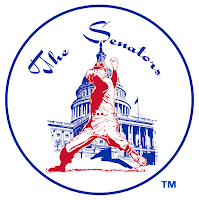Michael Dennis Ferraro
Seattle Pilots
Third Base
Bats: Right Throws: Right Height: 5'11" Weight: 175
Born: August 18, 1944, Kingston, NY
Signed: Signed by the New York Yankees as an amateur free agent before 1962 season
Major League Teams: New York Yankees 1966, 1968; Seattle Pilots 1969; Milwaukee Brewers 1972
As a Manager: Cleveland Indians 1983; Kansas City Royals 1986
Died: July 20, 2024, Las Vegas, NV (age 79)
Mike Ferraro played in 162 major league games in parts of four seasons, spending the most time in the big leagues as a coach in the 1980s and early 1990s. Ferraro was a September call-up by the Yankees in 1966, making it into 10 games late in the season in an audition for the third base job that had been held by Clete Boyer (#489). After spending all of 1967 back in the minors, he'd come up for 23 more games with the Yankees in 1968, and was the club's opening day third baseman. Drafted by the Pilots in the expansion draft, Ferraro was on the club's opening day roster, but only played in five games before heading back down to the minors again. He'd see the most action with the Brewers in 1972, appearing in 124 games as the club's most used third baseman. Ferraro batted .255 with a pair of home runs and 29 RBIs, and it was to be his last action in the majors as a player.
Died: July 20, 2024, Las Vegas, NV (age 79)
Mike Ferraro played in 162 major league games in parts of four seasons, spending the most time in the big leagues as a coach in the 1980s and early 1990s. Ferraro was a September call-up by the Yankees in 1966, making it into 10 games late in the season in an audition for the third base job that had been held by Clete Boyer (#489). After spending all of 1967 back in the minors, he'd come up for 23 more games with the Yankees in 1968, and was the club's opening day third baseman. Drafted by the Pilots in the expansion draft, Ferraro was on the club's opening day roster, but only played in five games before heading back down to the minors again. He'd see the most action with the Brewers in 1972, appearing in 124 games as the club's most used third baseman. Ferraro batted .255 with a pair of home runs and 29 RBIs, and it was to be his last action in the majors as a player.
He'd latch on with the Yankees organization as a minor league manager, joining the rebuilding American League club in 1979 as their third base coach. Ferraro had coaching stints with the Yankees (1979-82), Royals (1984-86), Yankees again (1987-91) and Orioles (1993). He briefly managed the Indians in 1983, beginning the season with a 40-60 record before being replaced by Pat Corrales (#382). He won a World Series ring with the Royals in 1985, and took over as the team's manager in 1986 for an ailing Dick Howser. Ferraro's record as a major league manager was 76-98.
Building the Set / Card #549
December 15, 2024 from The Philly Show (Vintage Cardboard Collectibles)
On Sunday, December 15th, Doug and I attended the latest Philly Show, spaciously spread out inside Hall A of the Greater Philadelphia Expo Center in Oaks, Pennsylvania. I wrote a full show report over at The Phillies Room, including some thoughts on attending the show with our oldest son, who first graced the Philly Show floors back in 2012.
Having spent the first half hour or so pulling 98 commons and semi-stars from the neon green binder of Uncle Dick's Cards, and adding the big purchase of the day, the Rollie Fingers (#597) rookie card, and after adding a few more star cards, the remaining cash I had was starting to burn a hole in my wallet. I had noticed the common/semi-star boxes at the tables of Vintage Cardboard Collectibles, and I found 14 more cards for our 1969 Topps set and six cards for our not-yet-officially collecting 1959 Topps set. This is the fourth of those 14 cards. After the obligatory dealer discount, I handed over the last of my cash, and we exited the show for the drive home.
The Card / Pilots Team Set / Accuracy Index -8
Ferraro is clearly wearing a Yankees uniform here, and the photo was likely taken at the same time as the photo used on his 1968 rookie card. His past accolades with the Yankees are mentioned on the back. He did in fact start the first 13 games for the club at third base in 1968, before being replaced for most of the rest of the season by Bobby Cox (#237). Ferraro was batting only .148 when he lost the starting job to Cox.
Accuracy Index: This is an early series card, and the -8 score is fairly common until we get later in the set.
1969 Season
Ferraro played in five games for the Pilots, all in April, going 0 for 5. On April 30th, Ferraro and Gerry Schoen were traded to the Orioles for minor leaguer Lloyd Fourroux, Tom Fisher and John O'Donoghue. Ferraro appeared in 115 games for the Rochester Red Wings, the Orioles' top farm team, batting .279 with 19 doubles, four home runs and 40 RBIs.
|
|
|
First Mainstream Card: 1968 Topps #539
Topps Flagship Set Appearances (4): 1968-69, 1972, 1983
Most Recent Mainstream Card: 1990 Topps TV New York Yankees #4
Total Non-Parallel Baseball Cards: 33 in the Beckett online database as of 8/9/25.
Sources:
Baseball Reference / Wikipedia
Beckett Database / The Trading Card Database
#82 Pirates Rookie Stars / #84 Bob Humphreys - Washington Senators





























































